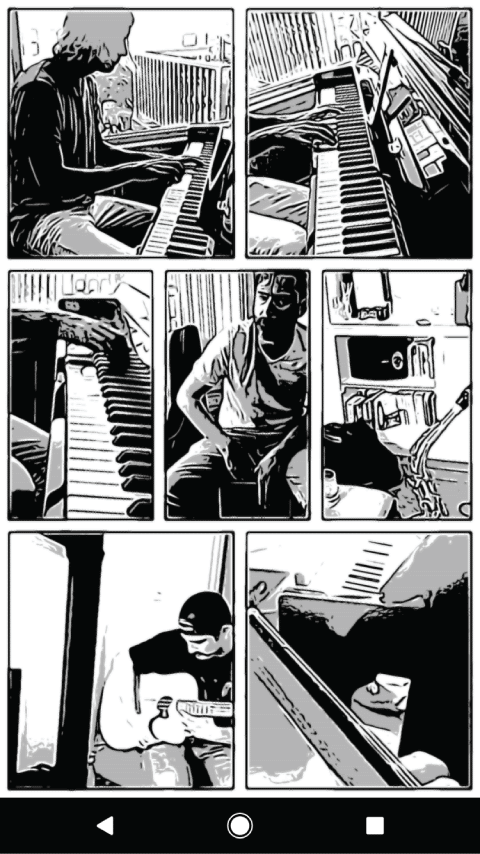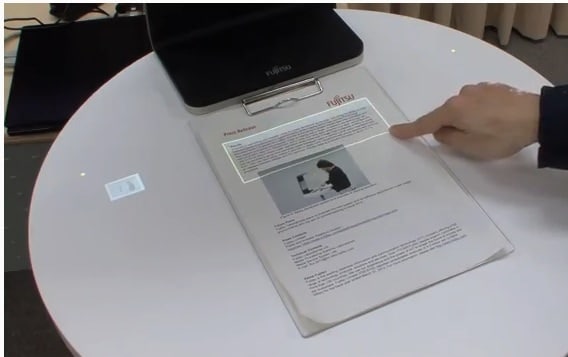The Authors Guild Calls for a "Public Lending Right"

The Authors Guild looked at the survey report on author income that they released a couple weeks ago, and they have come up with a solution that won’t actually fix anything.
They want the US gov’t to introduce a "public lending right" and force public libraries to pay author a fee each time their books are borrowed by patrons.
Edit: James Gleick pointed out in the comments that I was wrong to say that libraries would pay; The Authors Guild is proposing that taxpayers fund the PLR.
The system we envision should be more generous, and of course the U.S. market is much larger. Authors would register—the system might be administered, for example, by the National Endowment for the Humanities. Each year libraries nationwide would report aggregate lending statistics for each book (protecting the privacy of borrowers, of course). The systems for handling the data collection are mostly already in place, so the costs should be negligible, but in any case, they must not be borne by the libraries. The maximum payment to any one author would be capped: the idea is not to reward J. K. Rowling (no offense, Joanne) but to provide some much-needed help for midlist authors.
The idea of creating a new government entitlement program may seem insanely ambitious—and we all see the current dysfunction in Washington. But change has to start somewhere. We’re embarking on what will be a long-term effort, hoping that we may someday have a President and Congress willing to spend money investing in culture and the arts once again.
I believe that the time to restart the discussion is now, in the age of widespread e-lending. Libraries are eager to lend ebooks as widely and freely as possible, and they are resentful when publishers put obstacles in their way, while publishers worry that sales of ebooks in particular are being cannibalized by apps that make it easy to download library copies. We never want to tell a library not to lend our books—love of libraries is at the core of who we are. At the same time, librarians themselves are recognizing that they need the professional author to survive.
When it comes to ideas that aren’t actually going to help those intended, this one is a doozy.
The nice thing about PLR being in use for decades is that we have access to data that shows that, contrary to The Author Guild’s claims, PLR does not help help the bulk mid-list authors.
The Author Guild was somewhat correct when they said 22,000 authors in the UK were paid up to 6,600 pounds, but what they forgot to tell you was that almost as many authors were paid zilch.
According to UK data from 2017 (the most recent I can find), a total of 41,750 authors were listed in the PLR system when the payments went out in February. Of that number, 19,548 received nothing at all because their share was less than one pound. Another 16.654 received under 100 pounds, while 3,232 received under 500 pounds (PDF).
The numbers are almost as bad in Canada, where 59% of all registered authors were paid less than $253.80 CAD in June 2018 (this includes the authors who were paid nothing).
The Authors Guild wants to adopt a system which has been shown to have negligible benefit to 87% of authors involved in the UK, and paid negligible sums to most authors in Canada. The only authors who really benefit are the blockbuster authors who don’t need the money in the first place.
To be fair, part of the reason that authors earn so little from PLR is that the program receives minimal funding. The UK government gave it 6 million pounds in 2017, while the Canadian government paid out just under ten million CAD. (The funding rate in Canada is actually significantly higher on a per capita basis – almost twice as high as the UK’s.)
But while we could fix the funding issue without too much trouble (assuming we could get any federal funding at all), that’s still not going to change the fact that only a minority of authors will benefit.
I think The Authors Guild needs to go back and come up with a better plan.
image by comedy_nose via Flickr



Comments
DaveMich January 17, 2019 um 12:00 am
Most library ebooks are lent by overdrive, which charges a controlled premium per book. That money goes to publishers. If the money isn’t reaching authors, then authors need to discuss that problem with publishers – right?
Sharon January 17, 2019 um 5:06 am
I have a better plan. Why doesn’t the AG send a letter to publishers and demand that they start paying authors better? Get rid of the draconian contracts. Pay authors directly instead of sending the money to crooked agents. That kind of thing.
But that would be too simple.
Nate Hoffelder January 17, 2019 um 7:20 am
What do you think of Germany’s PLR system?
Sharon January 17, 2019 um 7:40 am
The PLR, as far as I understand it, is a good thing. (Most) People in Germany also pay to use library (directly) so it makes more sense as then part of the fees presumably make their way to authors. Ebooks are not remunerated as part of this system.
There’s also the VGR Wort which pays authors out of a pool for books published in Germany and based on sales and that sort of thing. There’s a similar pool for music. My husband’s textbooks earn pretty darn good from this system.
But Germany is so much smaller than the U.S. I don’t see it happening anytime soon.
Disgusting Dude January 17, 2019 um 8:47 am
Doodling on the margins.
Worrying about a few hundred bucks they might extort from libraries while the publishers and agents keep the bulk of the money.
Standard Authors Guild baloney.
Will Entrekin January 17, 2019 um 10:00 am
Not really a surprise, though, is it? Their conclusions are basically that Amazon (along with Facebook and Google, for some reason) are bad so authors need more leveraging power against them to . . . increase royalties paid by resellers to publishers, who should increase the royalties THEY pay to authors, maybe, and the way to do all of that is to . . . petition the federal government to create a program that increases what libraries pay, when libraries ALREADY pay exorbitant fees to publisher for lending. But sure, taxes to support the arts, that’s the way.
~facepalm~
Limited licenses from authors to publishers, higher royalties from publishers to authors.
The Authors Guild needs to rally its members to go to their agents to negotiate higher royalties from publishers, even when that means lower advances against royalties.
This isn’t hard.
DaveMich January 17, 2019 um 10:38 am
I very much suspect that nobody at the ABA knows anything about how library e-book lending actually works, not even at the most basic level.
Mike D January 17, 2019 um 5:13 pm
If you don’t know your destination, setting a course is unlikely to find you a better place.
The Authors Guild don’t know anything useful about current author earnings so can’t plan changes.
I think the idea behind PLR was to help authors with low sales but whose books were in every library.
The Block-Buster author problem was partially considered by having a maximum payment (£6 600 in UK)
Allen F January 17, 2019 um 8:51 pm
What most people fail to understand is that the so-called 'Authors Guild' does not support authors when there’s a conflict between them and publishers. Each and every time something comes up (like the big5+apple vs Amazon) the AG has sided with the publishers – not with what would be best for their authors.
If there was such a thing as 'truth in names', they’d be called the Publishers' Guild.
Marilynn Byerly January 18, 2019 um 10:42 am
I have Canadian friends who write midlist who get enough, each year, to pay a month’s car payment or few weeks worth of groceries for a family of four. It might not be a fortune, but it helps those who aren’t bestsellers.
I doubt the US will every do this because free library books are in our public DNA all the way back to Ben Franklin, but using some excuse about AG or publishers is not a valid reason not to.
PJ January 18, 2019 um 10:57 am
Here’s the gun. There’s your foot. Feel free to shoot. It won’t help midlisters Instead the library’s will concentrate on the best sellers with the most circulation because that’s what they can afford and I will give them the most bang for their buck. They have a limited income. We don’t pay to join the Public Library here. They survive on government funding and donations. They’re going to make the best choices for their dollar in an attempt to survive. Midlisters will be wiped out.
James Gleick January 18, 2019 um 12:55 pm
Your story is false, and I ask you to retract it and publish a correction. We explicitly do NOT want libraries to pay fees to authors, or to pay anything whatsoever. On the contrary, my letter emphasizes our support for the right of libraries to lend books freely. I state: "We plan to work with the nation’s libraries to create a system that will benefit authors and libraries alike."
Our proposal is for the federal government, not libraries, to compensate authors for the free use of their books. That’s how it works in virtually all of the 35 nations that have adopted systems of PLR to support authorship and literacy and culture.
Nate Hoffelder January 18, 2019 um 1:21 pm
I will change my post because you’re right, that’s not what you said. And I apologize for putting words in your mouth.
But the thing is, if we did have a PLR here in the US, it would almost certainly be funded on the local level by taking money out of the budget of libraries.
And no, a PLR would not benefit libraries at all. They already have the right to lend books; it’s covered under the first sale doctrine, and Congress has recognized this. But legal theorists have also noted that creating a PLR would involve weakening the first-sale doctrine, and that has the potential to cause serious harm to libraries and the public.
Yes, I did read up on PLR both in Europe and when it was discussed here in the 1980s. That was in the half of the post that I didn’t publih because I didn’t want to get into the legal arcana.
Disgusting Dude January 18, 2019 um 6:45 pm
It doesn’t matter whether it’s the local, state, or federal government who delivers the cash to the publishers: it would come from the same place anyway: taxpayers. Government can’t give away anything it didn’t take first from somebody else.
The basic premise is that since people aren’t willingly giving them the money they believe they are entitled to, they want the government to use its coercive power to force them to pay.
Fix it again: say taxpayers, to be most accurate.
Nate Hoffelder January 18, 2019 um 7:59 pm
good point
Len Epp January 18, 2019 um 7:05 pm
One good thing about PLR is that unlike other forms of funding for the arts, it’s about directly putting money in the pockets of individual artists. All too often, funding for the arts ends up going to administrators and organizations and events and flashy cultural centres and such, with nary a dime allocated for an artist’s monthly rent or even a humble paintbrush.
But while I’m strongly in favour of government funding for the arts in principle, if an organization’s strategy for helping authors is asking for a big bag of free money from the government, frankly, it does not inspire confidence in the vitality of that organization.
One policy that might actually work in the US, given the nature of its politics around taxes and government funding, is the creation of an Artists Exemption. I wrote about this a long time ago for a (publicly funded) Canadian arts magazine here http://carte-blanche.org/shop-talk-a-proposal-for-artist-funding-reform-in-canada, so the framing at the top of the piece is outdated and the Canadian stuff might be a bit distracting, but if you skip down to this part you’ll see the argument:
“So here’s my dam-busting proposal for one big, radical change Canada could make to its traditional social funding model, one I think is appropriate for our times in more ways than one, and hence perhaps achievable:
The Canadian government should institute an ‘Artists Exemption’ on income tax similar to the policy the people of Ireland have enjoyed for the last forty-plus years.
Under this system, the first €40,000 of annual income anyone earns from their works of art is not subject to income tax.”
I know the AG present themselves as having a claim to being treated like they possess very good intentions, and that by some transitive property this ought to mean they are not subjected to a certain kind of scrutiny, but Gleick rather breathtakingly undermines his own argument when he points out they tried this very same idea out 40 years ago and failed. Gore’s “and will not, ever” claim, that Gleick himself quotes, needs a better rebuttal than “I think we can prove him wrong this time.”
Look – at the end of the day, someone is going to have to have to win a real argument about this. Good intentions and claims like “[w]e’ve still got more bibliophiles than bibliophobes” – an odd claim to make without elaboration, right after quoting Gore’s claim about American bibliophobia, by the way – will not be enough.
If the AG “think we can prove him wrong this time,” I think all of us who share their stated aim of improving conditions for authors would very much like them to go ahead and actually do that, in an actual argument.
If they do decide to do that, I leave them with this recommendation: do not lobby your congresspeople by saying “the Canadians and Europeans do it!” I can just imagine someone running for office or-re-election trotting that one out on a voter’s doorstep.
Nate Hoffelder January 18, 2019 um 8:04 pm
I like the tax deduction idea. It puts the burden on the creator to put effort into growing their income; it’s not a hand out.